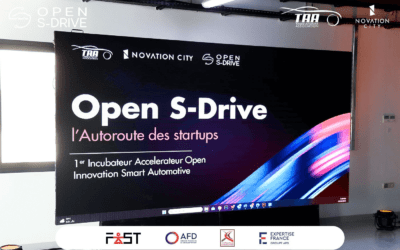Misfat Filtration, a Tunisian equipment manufacturer specializing in filters for the automotive and industrial sectors and is today the leader in the French after-sales market, developing its sales under its MECAFILTER brand and under numerous brands of distributors or manufacturers that he supplies. New references very quickly since 150 new products are designed each year. Talk with Amine Ben Ayed, CEO of Misfat Group.
What is the history of your industrial company?
Misfat Filtration started outsourcing to serve the Maghreb market. We made our first significant sales in 1999 with PSA, for whom we designed the oil filter for the Peugeot 205. We reached this market thanks to one of our customers, the automotive supplier Novares (then Mecaplast). He was also a shareholder of Misfat and owner of Solaufil France, a company specializing in the manufacture of filters, in particular with its brand MECAFILTER. Our competitive quality products, meeting European standards, have enabled us to become the supplier of original filters for groups such as PSA and Renault. Over the years, more and more car manufacturers and industrialists have chosen Misfat Filtration to outsource their parts. in the automotive sector, but we still could not sell our own brand in Europe. And then came the subprime crisis, the Mecaplast group got into trouble and sold the companies that did not correspond to its main activity, the plastics industry, at the time Misfat Filtration was the main supplier of its MECAFILTER brand. its offer of air filters with our Misfat Filtration oil and fuel filters led to the acquisition of Solaufil France, which took place in 2009. This adventure therefore began in an atypical way, since it is rare that a North African company buys a French industrial company.
How did you set up this Filter co-production?
Our priority was to keep “Made in France”, which is still important to us and has a real impact on the market. France has a very interesting place in Europe. The factory being the first air filter factory founded on French territory, we wanted to perpetuate this history and the industrial culture of the filter. We appreciated the teams present in France where the man triumphed over the company. It was not a question of relocating the production, but on the contrary of a common work to write together the new page of the factory. The co-production between France and
Tunisia is gradually recovering.
What has it brought to your filtration business?
Our priority was to keep “Made in France”, which is still important to us and has a real impact on the market. The place of France is very interesting within Europe. As the first air filter factory in France, we wanted to perpetuate this history and the industrial culture of the filter. We ended up appreciating the teams present in France, so on the business side, people took precedence. It was not a question of relocating production, but rather of writing the new worksheet together. This is how the co-production between France and Tunisia was gradually put in place. Our objective was not to reproduce the functioning of large French groups, which sometimes stop investing when they are in difficulty. The first two years were needed to reorganize the company. For example, we offered employees the opportunity to qualify for a job change and for lower value-added activities (eg back office) they moved to Tunisia. The company’s fixed costs were reduced and it became profitable. In ten years, we have quadrupled our French production and increased our net profit by 50%. In view of these results, we have built a new factory with ecological standards. and We introduced new ranges of filters for car interiors and air conditioning.
What would you say to French SMEs that might be interested in this model?
It is duplicable for many of them! It is virtuous because it offers a good allocation of costs which allows a company to become competitive and conquering while gaining market share. This second life in Tunisia creates jobs for both parties: the Euro-Mediterranean alliance is valuable and profitable to produce energy equal to that of China, thus establishing a win-win system. This is a unique opportunity as we share the same language and time zone. It’s easy! We are only two hours away from each other. For example, goods may leave the ship on Saturday and arrive at a Paris warehouse on Tuesday morning. There are also only advantages from an ecological point of view, since this proximity reduces CO2 emissions. Our legal system is even inspired by Europe to facilitate this process. Today, we are proud of this co-production between Tunisia and France. We are also constantly developing new products to meet demand and gain market share. Today we are the leader on the French market, combining sales under our MECAFILTER brand and under many distribution or industrial brands that we supply! Our customers know that they can always find their products at Misfat Filtration.





0 Comments